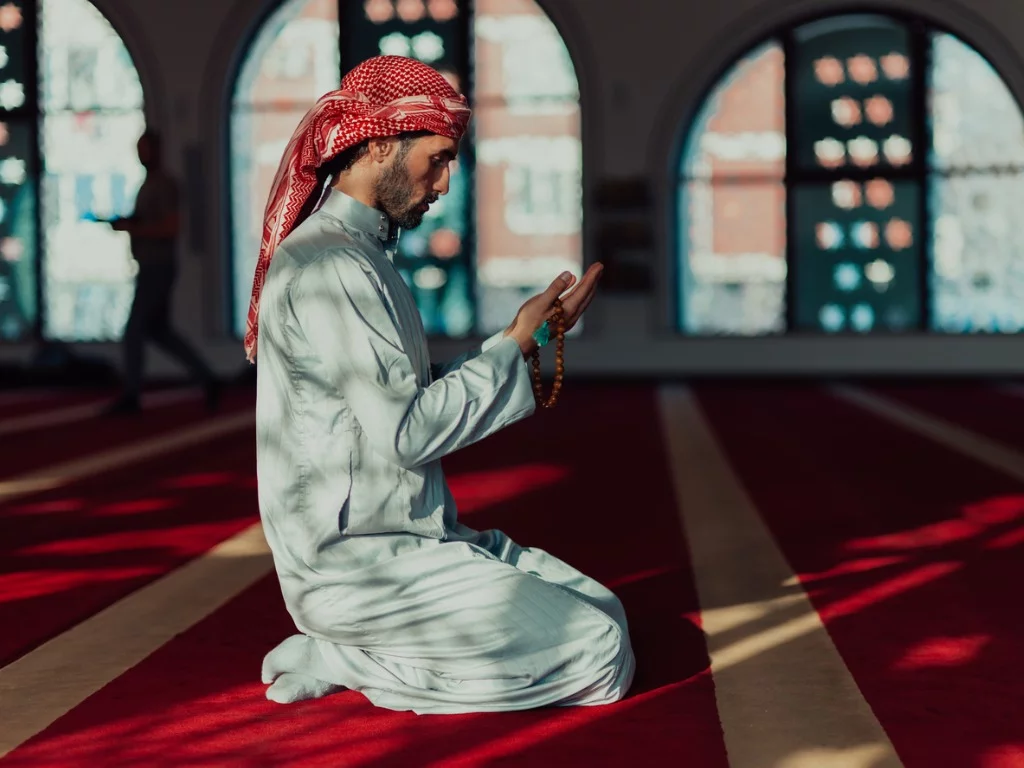You’re halfway through Ramadan, doing your best to stay hydrated between iftar and suhoor, but your skin has other plans. Your once-clear complexion is now speckled with breakouts, and no amount of moisturiser seems to help the dryness. Sounds familiar? Skin issues during fasting aren’t just random occurrences. But what exactly is happening beneath the surface?
One major factor contributing to skin issues is dehydration. Since your body isn’t getting water throughout the day, it starts drawing moisture from wherever it can, including your skin. This can lead to dullness, increased oil production, and a weakened skin barrier, making you more prone to breakouts. Neurologists explain that dehydration can also affect brain function, causing headaches and fatigue, which in turn can elevate stress levels, another notorious trigger for acne.
Why does fasting affect your skin?
Fasting forces the body to rely on stored nutrients and fluids, which impacts multiple systems, including your skin. Here’s what’s at play:
- Lack of water intake: When the skin doesn’t get enough hydration, it compensates by producing more oil. This excess oil can mix with dead skin cells and clog pores, leading to breakouts.
- Dietary changes: Ramadan often brings a shift in eating habits. While dates, samosas, and sweet drinks are staple iftar items, they can spike blood sugar levels, increasing inflammation and oil production.
- Disrupted sleep cycles: Suhoor and late-night prayers mean many people get less sleep during Ramadan. Poor sleep can cause cortisol to rise. Cortisol is the stress hormone, and a spike here leads to worsening acne and dulling of the skin.
How to prevent breakouts in Ramadan:
Hydrate well and eat well!
Drinking litres of water in one go at iftar won’t help. Your body can’t absorb it all at once. Instead, space out your water intake between iftar and suhoor. A good strategy is the 2-2-2 method: two glasses at iftar, two after Taraweeh prayers, and two at suhoor. Adding electrolyte-rich drinks can also help retain hydration better than plain water alone.
And this will help you in more ways than one. You see, dehydration doesn’t just affect the skin; it can dry out the mucous membranes, leading to issues like throat irritation and nasal dryness. Many people visiting an ENT in Dubai during Ramadan report discomfort related to this, not realising that their skin and respiratory health are closely linked.
Food is important, too. Your skin reflects what you eat, so making small changes to your diet can have a big impact. High-glycemic foods cause insulin spikes, which trigger excess oil production and inflammation, so you should focus on removing sugary or fried foods. You can also try eating more Omega-3s, with foods like salmon, flaxseeds, and walnuts to reduce inflammation and keep the skin barrier strong. And make sure to eat your fruits! Cucumbers, watermelon, oranges, and spinach provide water content along with essential vitamins.
Don’t Skip Skincare
This one is a no-brainer, and I hope no one needs to be reminded of this. A consistent skincare routine is crucial during Ramadan, but it doesn’t have to be complicated. Just use a gentle cleanser, moisturise as much as you can, and never skip sunscreen. This is very important. Even if you’re not spending much time outdoors, UV rays can still harm your skin. A non-comedogenic sunscreen will protect you without causing breakouts.
When should you see a specialist?
If you’re struggling with severe breakouts, persistent dryness, or unusual skin reactions during Ramadan, it might be time to consult a professional. If home remedies aren’t working, a dermatologist can provide tailored solutions, such as prescription skincare. Sometimes, underlying hormonal imbalances can exacerbate skin issues. An endocrinologist can assess whether conditions like insulin resistance or thyroid disorders are playing a role in your skin troubles.
Your skin is an extension of your overall health. So, as you go through this Ramadan, be mindful of what you eat, how much water you drink, and how you care for your skin. Small, consistent habits can make a big difference, leaving you with a radiant, healthy glow long after Eid has passed.
Email your news TIPS to Editor@Kahawatungu.com — this is our only official communication channel


